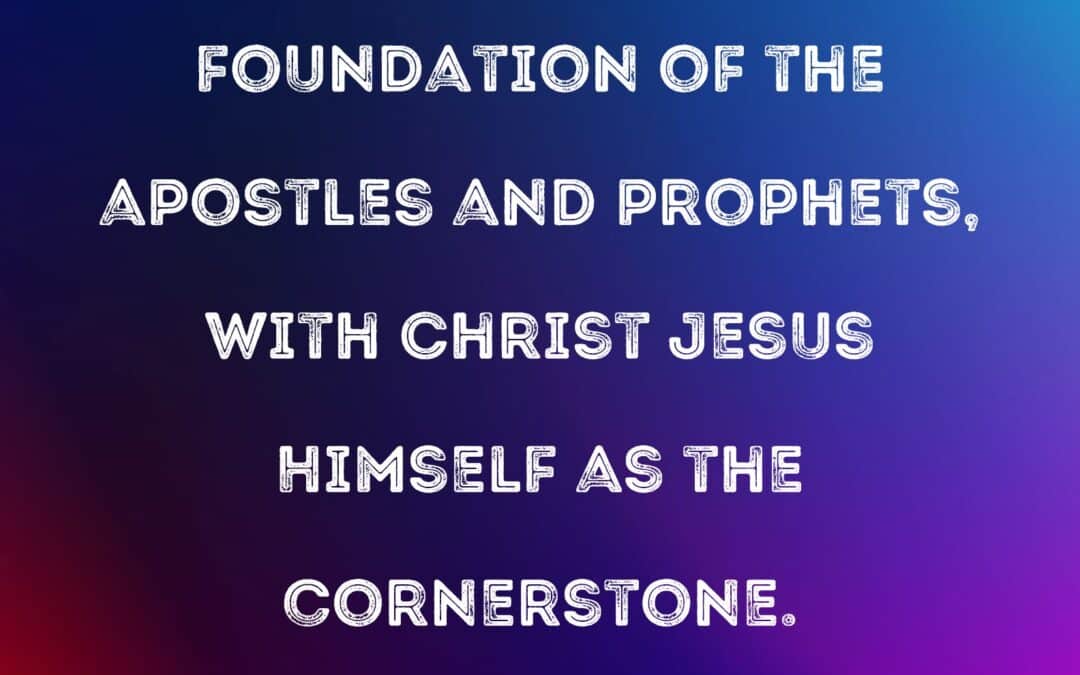In light of the Apostle Paul choosing to refer to Jesus Christ as the cornerstone of God’s house in Eph. 2:20, the implications become apparent. The prophets and apostles had to stay in line with Christ or else the building would be crooked and eventually topple over. So Christ himself (his obedience, his death, his resurrection and his teaching) was the most important piece of the foundation. Without Christ there is no reconciliation; only alienation. Nothing nor anyone else can join sinners to God and those saved sinners to one another. Additionally, without Christ there is no standard of measure; no guiding source of what is right or wrong, of what is proper or improper. This is why Paul tells the Corinthians in 1 Cor. 3:11 For no man can lay a foundation other than the one which is laid, which is Jesus Christ.
Despite that, what are some other options people employ for a foundation to be built upon?—pragmatism (whatever provides immediate tangible results is what is best); moralism (as long as we aren’t too wicked then God is pleased and/or teaching conservatism without teaching the gospel of Christ’s power); legalism (conformity to God’s law and our own preferences is why God accepts us); secularism (adopting the world’s values and ideas—examples include inclusivism & psychology).
If any of those things are inserted in the foundation of God’s building, there should be no expectation that God is the one doing the building, and consequently, there can be no expectation of spiritual activity. To accomplish what God desires for the church, let us trust in God’s design instead of our own.

